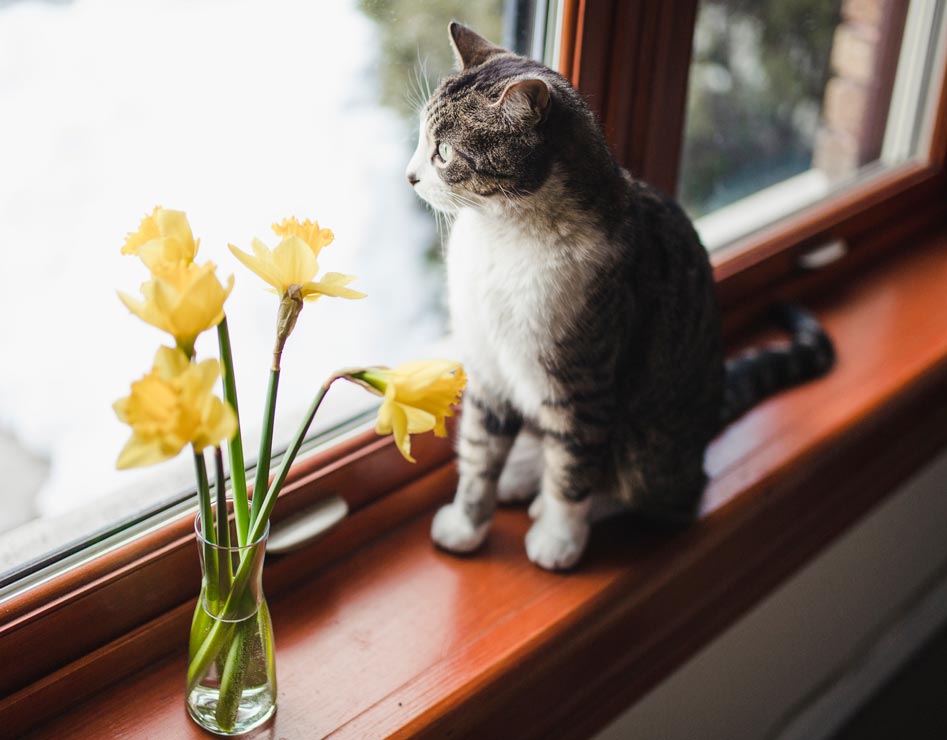Why Do Cats Chatter?

Have you ever seen your cat sitting in the window watching the birds or chipmunks when, suddenly, he starts making a strange chattering sound? The bottom jaw is moving up and down fast, and the noise that comes out of his mouth is somewhere between a chirp and a bark.
It's adorable behavior, but some people become alarmed when they see it for the first time, wondering if something's wrong.
Why Do Cats Chatter at Birds, Squirrels, and Chipmunks?
There are several ideas as to why cats do this behavior.
- The simplest idea about why cats chatter is that the kitty is frustrated that he can't get to the animal he sees. He gets super excited when he sees the prey but can't get through the window to stalk, chase, and pounce on it like his instincts are screaming at him to do. So, all that pent-up energy comes out as the strange chattering noise.
- A second hypothesis on why cats chatter is that they make the "prey noise" to alert the rest of their pride that there's a hunt to be had.
- Another commonly believed idea as to why cats chatter at prey is that they are trying to sound like the prey itself and thereby mask their approach to it. Perhaps the bird or chipmunk will think the kitty is just another bird or chipmunk and not get alarmed. This theory is bolstered by the fact that scientists have recorded cats in the wild mimicking the sounds monkeys make.
- The final idea on what cats could be doing when they engage in this chattering behavior is that they are mimicking or anticipating the killing bite they make when they catch pray. This bite is performed when a cat jumps on the prey, holds it with the front claws, bites its neck, and rapidly bites up and down with the lower jaw.
How to Keep an Indoor Cat's Hunting Instincts Soothed
Cats that live inside and don't get any opportunities to hunt could be especially frustrated when they see prey animals outside that they can't get to. Those cats could engage in redirected aggression, attacking people or other pets in the home. They may also scratch inappropriate objects to relieve the pent-up energy.
If your cat stays inside, you'll need to provide outlets for their innate hunter instincts. You can do that by setting aside time to regularly engage in interactive play with your cat. Use a wand toy to pretend to be a mouse or bird for your cat. Don't forget to let him "catch" it sometimes, especially at the end of the play session, and then give him a tasty treat to simulate the meal he'd get at the conclusion of a successful hunt.
Additionally, use a good-quality scratching post near the window so your cat can scratch away at it when he sees prey outside. That can help him relieve the stress of not being able to get to the animal he can see out there.
Get more ideas here: "Tips for Keeping Your Indoor Cat Mentally Stimulated."

